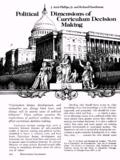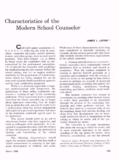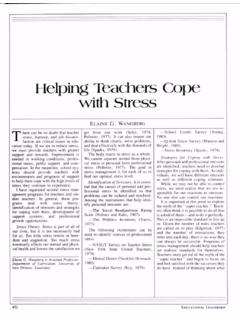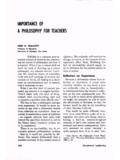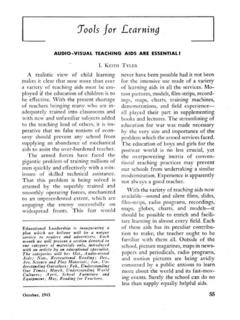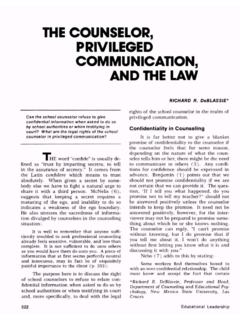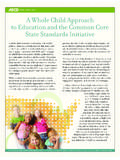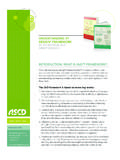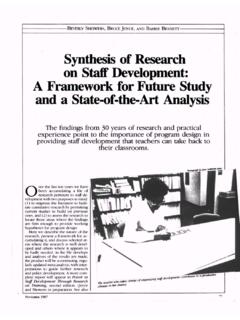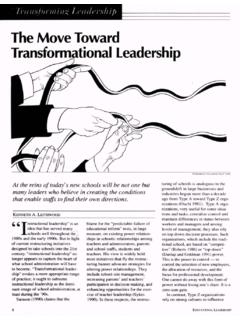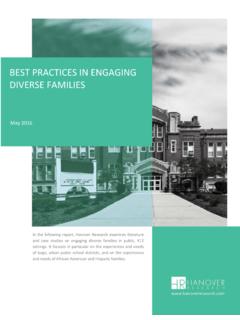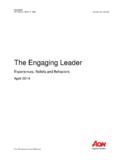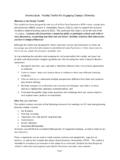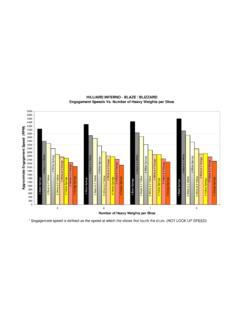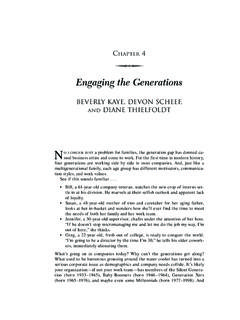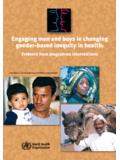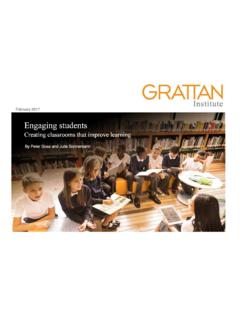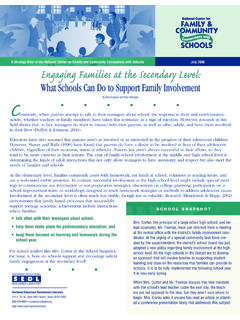Transcription of Engaging African American Males in Reading // …
1 February 2006 February 2006 | Volume 63 | Number 5 Helping Struggling Students Pages 44-49 Engaging African American Males in ReadingBy providing meaningful Reading material and encouraging honest debate, teachers can help African American adolescent Males embrace the power of W. TatumThe field of education is saturated with studies documenting the poor performance and achievement deficits of African American Males throughout their school years. National Reading achievement data continue to indicate that as a group, African American Males particularly adolescents in middle and high school classrooms are not performing have examined several factors that serve as barriers to achievement for African American Males . Internal factors include self-concept and identity issues. African American male students often exhibit various cultural-specific coping mechanisms such behaviors as acting tough, failing to retreat from violence, avoiding self-disclosure, and dissociating from school.
2 These students are often subject to disproportionate and sometimes unfounded grade retentions and suspensions because teachers and administrators misinterpret these behaviors and find them factors include structural racism, community patterns, parents' education attainment, and socioeconomic status. These adolescents must also deal with negative stereotypes in and out of school, a scarcity of positive role models, and a lack of culturally competent instruction and direction. Moreover, many of them experience problems associated with low socioeconomic status and high-risk neighborhoods. Students in such neighborhoods are often too consumed with concerns about mortality and safety to think seriously about either schooling or their uncertain futures. Converging in multiple sources of stress and dissonance, these factors characterize the experiences of African American Males as they begin the tumultuous adolescent work of self-definition (Fashola, 2005).Several solutions proposed over the last 10 years specifically address the literacy needs of African American adolescent Males .
3 They include providing culturally responsive literacy instruction that links classroom content to student experiences; developing character development programs, rites-of-passage programs, comprehensive literacy programs, and academically oriented remedial programs; and establishing all-male academies or alternative schools and programs designed specifically for African American the proposed solutions emphasize a meaningful curriculum reflective of student experiences. Yet the most vulnerable African American adolescent Males remain in public schools in which literacy instruction is not responsive to their Missing PieceA review of research that I recently conducted on the education of African American adolescent Males revealed a glaring omission: the role of text in literacy development. Although curriculum is often a significant consideration for improving education outcomes for African American Males , specific texts and text characteristics that should inform curriculum selection are strikingly is problematic because educators who are seeking to identify ways to engage African American Males in Reading -related tasks have little guidance in doing so.
4 For example, a high school administrator recently e-mailed me on behalf of a 9th grade teacher. They were both looking for a piece of literature that may teach [respect and civility] without doing so in an explicit fashion. By selecting appropriate Reading materials, teachers can engage African American adolescent Males with text, particularly those students who have not mastered the skills, strategies, and knowledge that will lead to positive life outcomes. This productive shift in literacy takes into account students' four literacy needs academic, cultural, emotional, and social and relies on instructional practices that have proven effective with African American curriculum on the basis of such texts and creating a responsive environment can foster meaningful discussions among students against an education backdrop of standards and accountability. African American adolescent Males currently have limited exposure to this kind of quality literacy instruction in school.
5 A meaningful program should include texts that shape a positive life trajectory and provide a roadmap that can help students resist nonproductive That MatterHistorically, texts have been central in the literacy development of African American Males , with the connections among Reading , writing, speaking, and action eminently clear. The literacy development of African American Males , both self-generated and school-rendered, connected to larger ideals, such as cultural uplift, economic advancement, resistance to oppression, and intellectual development. The African American abolitionist Frederick Douglass recalled how Reading two books set him on his life's course: the political essays and dialogues in The Columbian Orator, edited by David Blight (New York University Press, 1998), which Douglass read in early adolescence; and the piquant documents of the abolitionist William Lloyd Wretched of the Earth (Grove Press, 1963), an important anti-colonial text written by Caribbean-born Frantz Fanon, became a blueprint for many African American Males in the 1960s who were trying to define themselves without embarrassment, apology, or external constraint as they embraced the Rights of Man ideology put forth centuries earlier by Thomas Paine.
6 According to Van Deburg's comprehensive account of the rise and fall of the Black Power movement, Every brother on a rooftop could quote Fanon, and [ African American Males ] acknowledged that something uniquely their own their distinctive Afro- American culture very well might turn out to be the most essential weapon in [their struggle]. (1992, pp. 60 61)History is laden with these kinds of enabling texts for African American Males . An enabling text is one that moves beyond a sole cognitive focus such as skill and strategy development to include a social, cultural, political, spiritual, or economic the last 30 years, however, the kinds of texts that African American Males as a group encounter in schools have been characteristically dis-abling. They lack that broader perspective and largely ignore students' local contexts and their desire as adolescents for self-definition, focusing instead on skill and strategy development. This shift is largely influenced by policy decisions to measure Reading output using psychometric instruments, the use and misuse of the data resulting from these instruments, and the associated education practices that these instruments influence such as academic tracking, retention in grade, and remedial curriculums have had dire effects on African American adolescents.
7 These practices have created an oppositional identity in students, a resistance to school-related tasks, and a diminished sense of self as an academic being. Many experience school as an assault on their identities and on their masculinity. They believe that their existence simply doesn't matter. Disproportionately referred for disciplinary actions and assigned to special education placements, they see little reason to navigate this path of humiliation. Many end up dropping out of the TrajectoryWe need to shore up the resilience of African American adolescent Males , particularly struggling readers attending public schools in low-income areas. Identifying texts that can shape positive life outcome trajectories for African American Males who constitute 7 percent of the school-age population (4 million of 53 million) is a significant texts have four characteristics: They are intellectually exciting for both students and teachers, they serve as a roadmap and provide apprenticeship, they challenge students cognitively, and they help students apply literacy skills and strategies independently.
8 More specifically, must-read texts should Engage students in authentic discussions in which they can analyze their realities in the context of the curriculum and discuss strategies for overcoming academic and societal barriers. Address students' cognitive and affective domains, taking into account students' cultural characteristics. Connect the social, the economic, and the political to the educational. Acknowledge that developing skills, increasing test scores, and nurturing students' identities are fundamentally compatible. Resolve the either-or dilemma of focusing on skill development versus developing intelligence by offering challenges that satisfy both requirements. Serve as soft role models in the absence of physically present male role models by providing motivation, direction, and hope for the future and suggesting what is worthwhile in life. Identifying Reading material is not sufficient, however. Teachers need professional support to help them mediate texts with students, such as WestEd's Reading Apprenticeship framework.
9 In addition, the students themselves should provide input about the value of these texts. Their voices are noticeably absent in conversations about their literacy-related successes and failures in middle and high school Reading RelevantTo shore up resilience in my own African American students, I introduced a wide variety of texts. As part of my 8th grade social studies curriculum, my students read extracts from David Walker's Appeal, arguably the most radical of all anti-slavery documents. Published in 1829, it called for slaves to revolt against their masters. Wanting to focus the students on one central question that would resonate with them, I asked, Do you think African Americans should integrate or separate? Some students argued that African Americans should separate. Others insisted that people needed to move beyond that narrow perspective, that we're all human. One student commented that what might have been a good idea 200 years ago was no longer valid.
10 Another wondered aloud why we even needed to focus so specifically on things black. We then studied a text written by Martin Luther King Jr. that promoted a contrary thought the necessity of integrating. Students argued the merits of both perspectives, using the texts to support their points of also introduced James Baldwin's My Dungeon Shook: Letter to My Nephew on the One Hundredth Anniversary of the Emancipation (Dial Press, 1963), giving my students the opportunity to critique society and examine their place within it. We explored such comments as You were not expected to aspire to excellence; you were expected to make peace with mediocrity (p. 7). I asked students to consider the relevance of this essay, not just to young African American men growing up today, but to young men everywhere. Finally, I wanted students to consider the role they played in constructing their own dungeons, as well as the roles their teachers, schools, and community played. They might begin to consider why they are in low-level Reading tracks or why they are in low-achieving Power of TextWe need to take an honest position with regard to the literacy development of African American adolescent Males .
